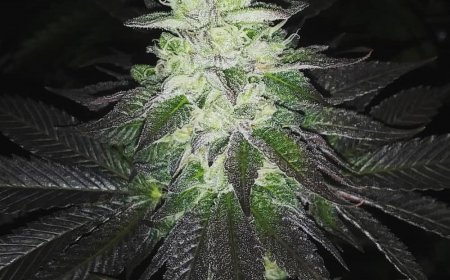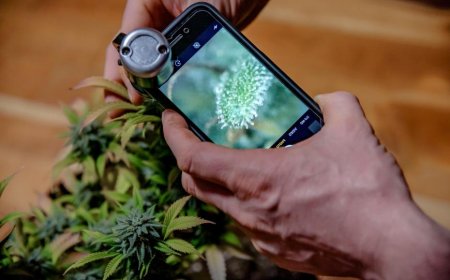Donkey Butter Strain
The unique Donkey Butter strain with our comprehensive guide, covering its history, genetics, effects, and how to grow this potent cannabis variety.
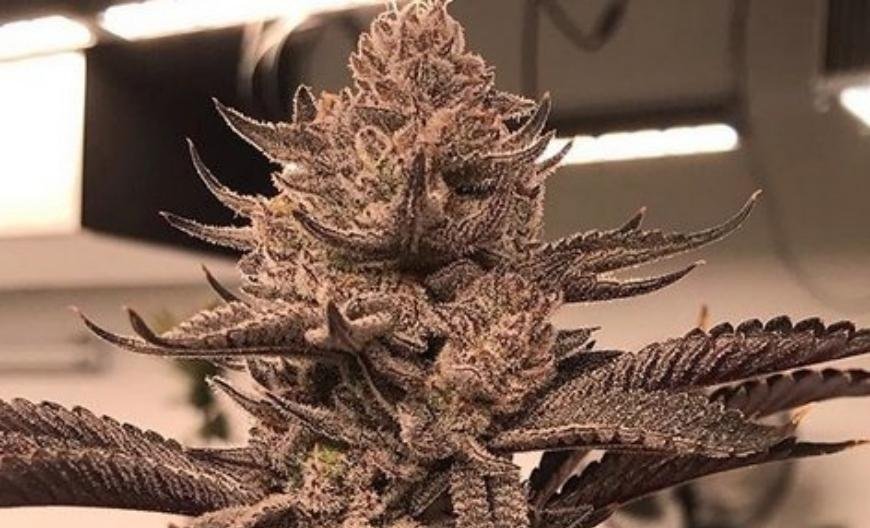
If you're a cannabis enthusiast, chances are you've heard of the Donkey Butter strain. This unique and potent hybrid has been making waves in the marijuana community for its intriguing lineage and effects. In this blog post, we will delve into the fascinating world of Donkey Butter, exploring its history, genetics, and cultivation process.
As we journey through the origins of this strain, you'll discover how Grease Monkey crossed with another popular variety to create the distinctive Donkey Butter. We'll also examine its cannabinoid composition, highlighting the levels of THC and CBD present in this strain.
Finally, prepare your senses as we describe the aroma and flavor profile that sets Donkey Butter apart from other strains on the market. By gaining a deeper understanding of this remarkable strain's characteristics and growth requirements, both novice growers and seasoned experts can fully appreciate what makes Donkey Butter so special.
Table of Contents:
- Overview of Donkey Butter Strain
- History of Donkey Butter Strain
- Genetics and Lineage of Donkey Butter strain
- Growing Donkey Butter strain
- THC,CBD and other cannabinoid levels
- Effects of Donkey Butter Strain
- Aroma of Donkey Butter Strain
- FAQs in Relation to Donkey Butter Strain
- Conclusion
Overview of Donkey Butter Strain
Donkey Butter is a unique and rare strain of cannabis that has become increasingly popular among recreational users. It is an indica-dominant hybrid with strong genetic roots in the landrace strains Afghan Kush and Afghani Bullrider. This strain was first cultivated by breeders at Donkey Farms in Colorado, USA and offers a powerful sedative effect combined with intense cerebral stimulation.
Donkey Butter was first bred by breeders at Donkey Farms in Colorado, USA back in 2010. The original parent strains were Afghan Kush and Afghani Bullrider which gives it its distinct flavor profile as well as its potent effects. Due to its scarcity and strength, Donkey Butter has become a highly sought-after strain in recent years.
The genetics behind this unique strain are from two landrace strains; Afghan Kush and Afghani Bullrider both originating from Afghanistan’s Hindu Kush mountain range region near Pakistan border area. These two indica-dominant hybrids offer a balanced mix between mental stimulation and physical relaxation when consumed together creating an enjoyable experience for many users looking for something different than traditional marijuana varieties out there today.
The Donkey Butter strain is a potent indica-dominant hybrid with powerful effects and an unmistakable aroma. It's origins remain mysterious, but the potency of this strain cannot be denied. Moving on to its history, it appears that the Donkey Butter Strain has been around for quite some time now - let us explore further into its roots.
History of Donkey Butter Strain
The Donkey Butter strain is an indica-dominant hybrid that was created by crossing the classic Skywalker OG and White Fire Alien strains. This potent combination of genetics has resulted in a powerful, high-THC strain with a pungent aroma.
This unique strain first appeared on the scene in 2017 when it was bred by breeders at Cali Connection Seeds. It quickly gained popularity among cannabis connoisseurs due to its incredibly high THC levels which range from 20% to 28%. As such, this particular strain should only be consumed by experienced users who are familiar with the effects of strong marijuana products.
The history of Donkey Butter strain is a fascinating one, with its origins tracing back to the early 2000s. Time to delve into the genetic and familial background of this remarkable marijuana strain.
Genetics and Lineage of Donkey Butter strain
Donkey Butter is a hybrid cannabis strain with unknown origins, but it is thought to have been created by crossing the classic strains Donkey Kong and Gorilla Glue #4. This strain is renowned for its strong scent and powerful effects.
When it comes to genetics, Donkey Butter can be traced back to two of the most popular cannabis strains in recent history: Donkey Kong and Gorilla Glue #4. The former is an indica-dominant hybrid that was bred from Sour Diesel and Bubble Gum Kush; while the latter is a sativa-dominant hybrid created by crossing Chem’s Sister with Chocolate Diesel.
The combination of these two powerful parents results in a balanced 50/50 split between indica and sativa effects, making this an ideal choice for those looking for both mental clarity as well as physical relaxation. As far as cannabinoid levels go, tests show that Donkey Butter contains relatively high amounts of THC (20% – 25%) along with moderate levels of CBD (1% – 2%).
The Donkey Butter strain is a unique hybrid of two very popular cannabis strains, Sour Diesel and OG Kush. This particular strain, boasting a high THC content and intense flavor profile, has become highly sought after by cannabis enthusiasts. Growing the Donkey Butter strain requires patience and dedication to ensure that it reaches its full potential in terms of yield, potency, aroma, taste, and effects.
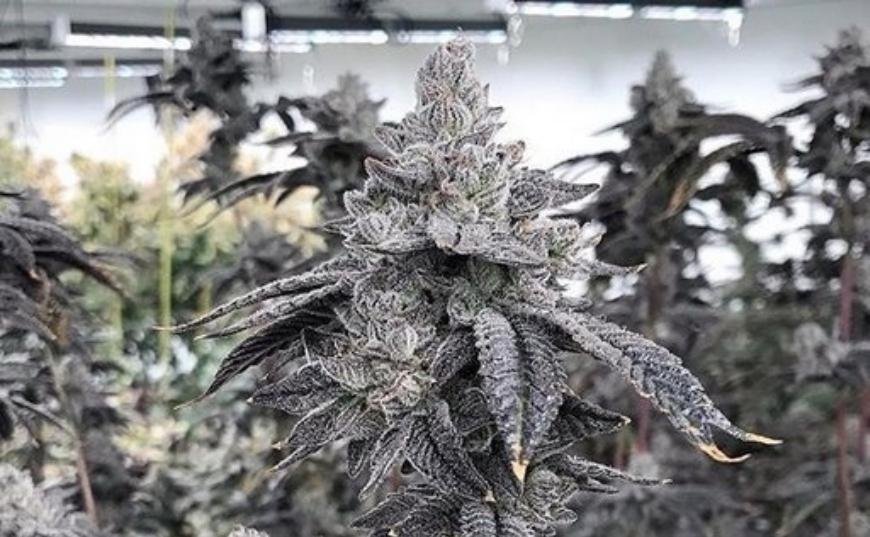
Growing Donkey Butter strain
Growing the Donkey Butter strain of cannabis is a great way to produce high-quality buds that are full of flavor and potency. This hybrid strain, which is a cross between Grease Monkey and an unknown indica parent, produces dense nugs with shades of deep purple, bright green, and yellow hues. The buds have a strong aroma of diesel fuel mixed with sweet notes of fruit and candy.
When growing this strain indoors or outdoors, it’s important to be mindful that the plant prefers warmer climates in order for it to reach its full potential. When grown indoors under LED lights on hydroponics systems you can expect your plants to reach up to 80 cm tall with yields ranging from 500-600g/m2 after 8 weeks flowering time. If grown outdoors make sure you have plenty of sunlight as this will help the plants grow taller than when grown indoors reaching heights over 2 meters.
You should also provide some support for the branches since they tend to get quite heavy due to their size and weight when loaded with ripe buds. For optimal results use organic soil mix as well as liquid nutrients such as guano tea or worm castings every other week during flowering period (weeks 5-8).
To ensure good quality bud production trim off any fan leaves that may block light from reaching lower parts of your plants; this will help increase air circulation around them too. During last few weeks before harvest start flushing out all nutrient solutions so that there won't be any residual build up in final product – this will improve taste & smell while making smoke smoother & easier on lungs. Finally once ready cut down entire plant at base then hang upside down until completely dry before curing process begins (which takes about two weeks).
By following these steps you'll end up harvesting top shelf flowers bursting with flavor and potency. Enjoy responsibly. Happy growing.
Growing Donkey Butter strain is an enjoyable experience for those looking to cultivate a unique and powerful hybrid. With its high THC, CBD and other cannabinoid levels, it offers users the potential for an intense yet rewarding psychedelic journey.
THC,CBD and other cannabinoid levels
This strain is a powerful one, boasting an average THC level of 22-24%, plus 0.3% CBD, resulting in pronounced psychoactive effects. The Donkey Butter strain contains not only THC and CBD, but also small amounts of other cannabinoids such as CBG, CBC and CBN.
The THC, CBD and other cannabinoid levels of the Donkey Butter strain can vary greatly depending on how it is grown. This makes understanding its effects difficult without knowing more about the specifics of each individual crop. As such, we now turn to what kind of effects this particular strain may have when consumed.
Effects of Donkey Butter Strain
The effects of the Donkey Butter strain are deeply sedating, with a high that weighs heavily on both body and mind. This indica-dominant strain is renowned for its potent calming qualities, perfect to help you unwind after a busy day or to promote restful sleep.
Donkey Butter is a cross between two powerful indica strains – Afghani and White Fire Alien OG (WIFOG). The combination creates a balanced hybrid with earthy flavors and aromas of pine and diesel. Its THC content ranges from 16-20%, so users should expect an intense experience when consuming this strain.
When smoking Donkey Butter, users will first feel the physical relaxation come over them as their muscles loosen up. As the mental effects take hold, smokers will find themselves feeling more introspective than usual while still being able to think clearly enough to carry on conversations or engage in activities like watching TV or playing video games if desired.
The effects of Donkey Butter strain can be quite potent, with a powerful and long-lasting high. This strain's fragrance is an earthy yet sugary pleasure that will excite your olfactory senses.
Aroma of Donkey Butter Strain
Its pungent odour, reminiscent of earthy diesel and pine with a hint of citrus, is unmistakable when lit up. It also carries a subtle sweetness that can be detected in the background. The aroma of this strain is very strong when it’s smoked or vaporized; it will fill up an entire room quickly.
Donkey Butter's terpene profile consists mainly of myrcene, pinene, caryophyllene, limonene and humulene. Myrcene contributes to the earthy aroma while pinenes provide a pine-like scent. Caryophyllenes give off a spicy smell that lingers in the air after smoking or vaping this strain. Limonenes are responsible for its sweet lemon flavor while humulenes add to its herbal taste and smell.
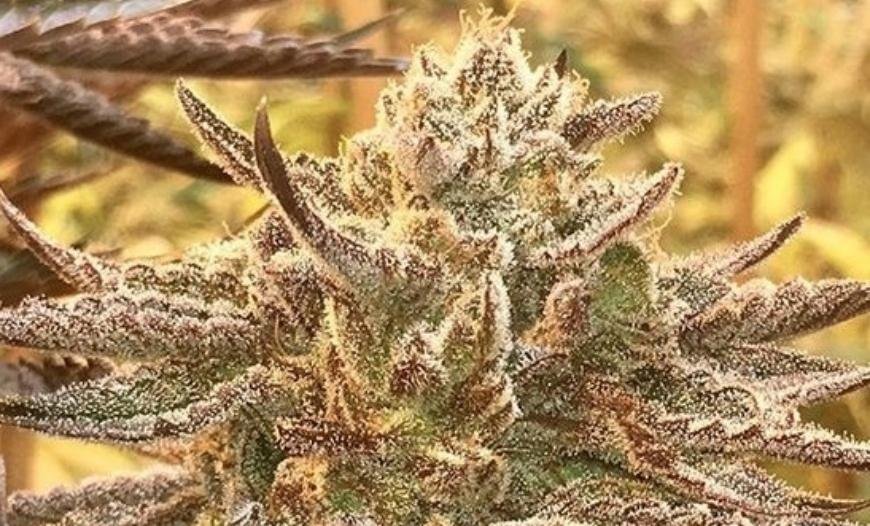
FAQs in Relation to Donkey Butter Strain
Is Donkey Butter a good strain?
This strain offers an aromatic blend of earthiness and sweetness, with notes of coffee and chocolate. Its effects are calming but uplifting, providing users with both mental clarity and physical relaxation. This strain is perfect for anyone looking to destress, from novice consumers to seasoned users. With its balanced high, this strain can be enjoyed by all levels of consumers from beginners to advanced users alike.
What is the most powerful strain in the world?
The most powerful strain in the world is considered to be "Godfather OG," a potent hybrid of OG Kush and Alpha OG. It has an incredibly high THC content, often reaching levels as high as 34%. This powerful strain delivers an intense and prolonged high, making it one of the most potent on offer. Godfather OG provides users with intense euphoria, relaxation, creativity and energy that can last for hours at a time. Those looking for an extremely potent experience should definitely give this strain a try.
What is the happiest high strain?
The happiest high strain is not easily determined as each person's experience with different strains can vary. However, many users report feeling uplifted and euphoric when using certain Sativa-dominant hybrid strains such as Sour Diesel, Jack Herer, Blue Dream, Green Crack and Pineapple Express. Recreational marijuana consumers often opt for Sativa-dominant hybrid strains such as Sour Diesel, Jack Herer, Blue Dream, Green Crack and Pineapple Express due to their energizing effects that can inspire creativity while also inducing a sense of tranquility.
What is the stickiest strain?
The stickiest strain is a subjective matter, as different people will have different preferences. However, some of the most popular and sticky strains include Gorilla Glue #4, White Widow, Blue Dream, Sour Diesel and Granddaddy Purple. These strains are highly sought after by cannabis connoisseurs due to their strong aroma and flavor profiles. Each one offers its own unique effects from intense euphoria to relaxation depending on how it's consumed. Ultimately, the stickiest strain is whatever you prefer.
Conclusion
In conclusion, Donkey Butter strain is an indica marijuana strain that offers sedating effects and has a pungent fuel-forward aroma. It's made by crossing Grease Monkey with Triple OG and produces heavy resin. Growers have noted its dark buds with deep green colors as well as high THC levels which can be up to 20%. The Donkey Butter strain provides users with relaxing body sensations while calming the mind. This makes it great for those looking for relief from stress or pain without feeling overly drowsy.

